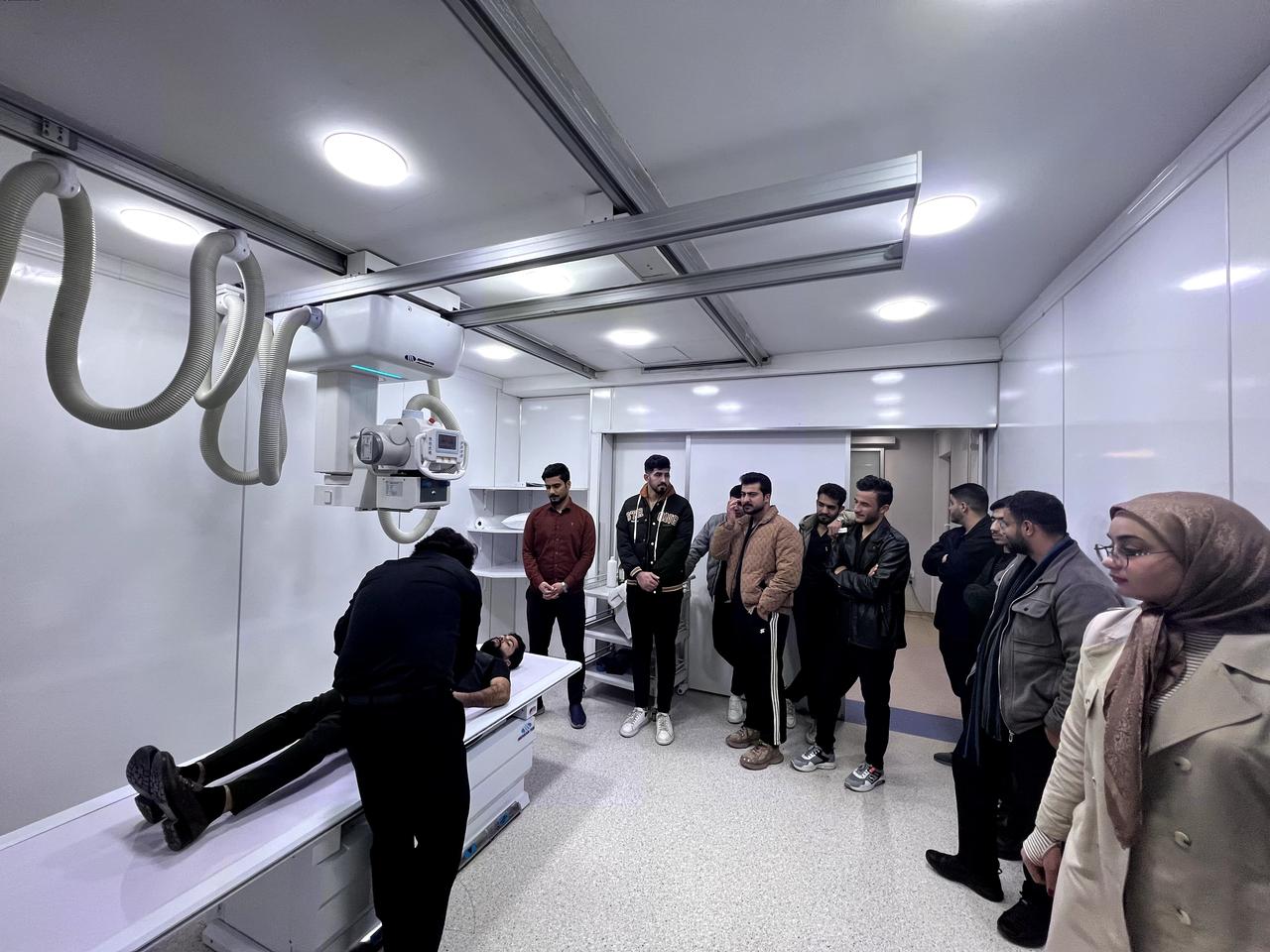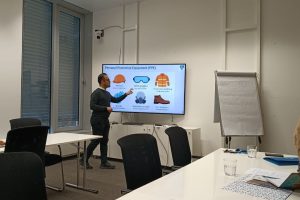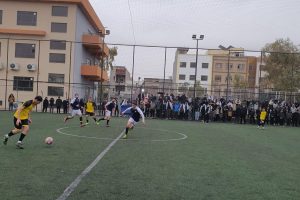Students from the Radiological Imaging Technologies Department Continued Practical Training at Erbil International Hospital
On Sunday, April 20, 2025, as part of the practical curriculum of the Radiological Imaging Technologies Department at Cihan University-Erbil, third-year students conducted an advanced clinical training session at Erbil International Hospital. The session was supervised by Assistant Lecturer Abdul Aleem, with field support and follow-up from Assistant Lecturer Navid Karimi, a medical imaging professional at the hospital.
During this hands-on training, students were introduced to the use of the C-Arm X-ray system, a crucial imaging device commonly utilized in operating rooms for real-time imaging during surgical procedures. The students had the opportunity to observe and interact with the machine in a clinical setting, gaining first-hand experience in operating the device, understanding its components, and learning the protocols for its safe and effective use.
In addition to the C-Arm demonstration, the training session included a segment on Magnetic Resonance Imaging (MRI) applications. Students observed the patient preparation process, learned how to select appropriate scanning protocols, and deepened their understanding of the physical principles that enable MRI to produce high-resolution diagnostic images. This exposure provided valuable insights into the operational and diagnostic potential of one of the most advanced imaging modalities in medical practice.
The students demonstrated a high level of engagement, asking insightful questions and showing enthusiasm for applying their theoretical knowledge in a clinical environment. The instructors provided detailed explanations and constructive feedback, helping the students bridge the gap between classroom concepts and real-world practices.
This practical training reflects the university’s commitment to developing highly skilled, job-ready graduates by integrating academic learning with real-life clinical exposure. The faculty praised the students for their professionalism and active participation, emphasizing the importance of continuous practical training in preparing them for future roles in healthcare institutions.





